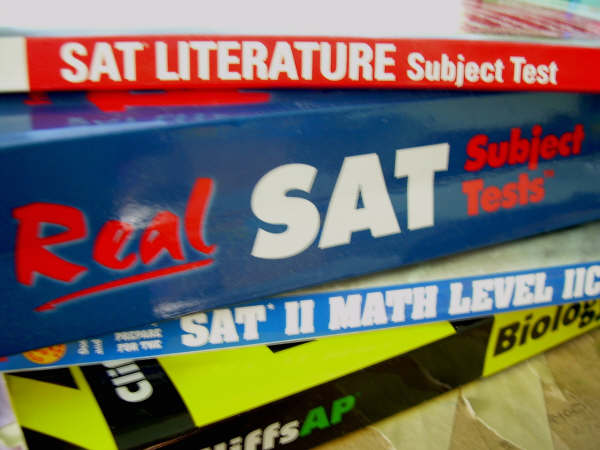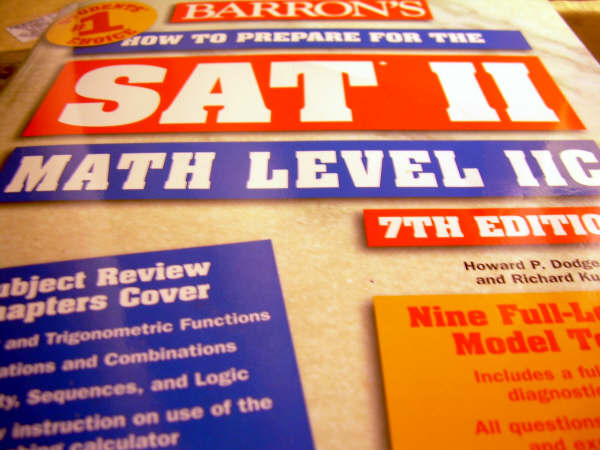More Than Just A Number
The Horror of College Admission Tests
This weekend I’m waking up at the crack of dawn to do something I’d really rather not be doing. My fellow students and I will be drawn into the depths of my high school to fill classrooms on a Saturday morning, no less. What could possibly explain such a phenomenon? Perhaps the threat of college?
For entrance to most public and private colleges in the United States, a number of standardized tests are required. These tests calls for weeks of preparation on top of the average high school workload, with an entire market devoted to increasing test scores. Princeton Review, Kaplan, and Barron’s are popular test prep books and agencies offering study skills and even guaranteed score improvement. What better way to make a profit than to stuff knowledge into the minds of the next generation?
Most commonly known on the West Coast is the SAT, consisting of three subjects: critical reading, math, and writing, with a required essay. Revamped in 2005, each section is graded on a scale from 200 to 800, with sub-scores on multiple-choice writing questions and on the essay. The four-hour test is designed to test critical thinking skills acquired throughout high school and is known for being geared toward math-inclined students.

Meanwhile, more common in the Mid-East and on the East Coast is the the ACT, an approximately three-hour-long test covering four subjects: English, math, reading, and science, with an optional essay portion. The ACT is graded on a scale of 1-36 and is known for those more verbally inclined. It’s also referred to as “friendly,” presenting a format familiar to those seen on most high school tests.
Next are the SAT Subject Tests, two of which are required by public universities. These hour-long tests cover specific subjects, ranging from languages and world history to literature and chemistry. The particular topics are designed to showcase a student’s abilities in a certain subject, and are graded on a scale from 200-600.
This fails to mention the “optional but highly recommended” tests that impress admissions officers, like Advanced Placement (AP) exams that show a student’s ability to handle a college-level curriculum.
(And let’s not forget the PSAT, the preliminary test to the SAT taken usually in a student’s junior year, opening up scholarship opportunities for brilliant students.)

Brilliance is, of course, an opinion. Using standardized testing to determine intelligence goes back to the days of IQ tests, which were originally designed to show the superiority of one race over another. It’s easy to say that such tests shouldn’t matter, but in reality, they kind of do.
I’d love to say that I don’t care, throwing my books, score reports, and receipts out the window. Unfortunately, the truth hurts, finding me hoarding my numbers in a precious folder in my room instead. The ACT gave me a headache. SAT Subject Tests are a pain. AP tests shot my social life. Sure, there are a select few who enjoy taking standardized tests, but I’m not one of them.
If schools press that test scores are only a portion of the admissions process, why are statistics still reported, and taken so seriously? Why are students still comparing their numbers? Most importantly, why have I wasted the last month studying a subject I don’t even like?
I hope the desire for standardized intelligence will one day amount to something more – something more than a bunch of numbers.



